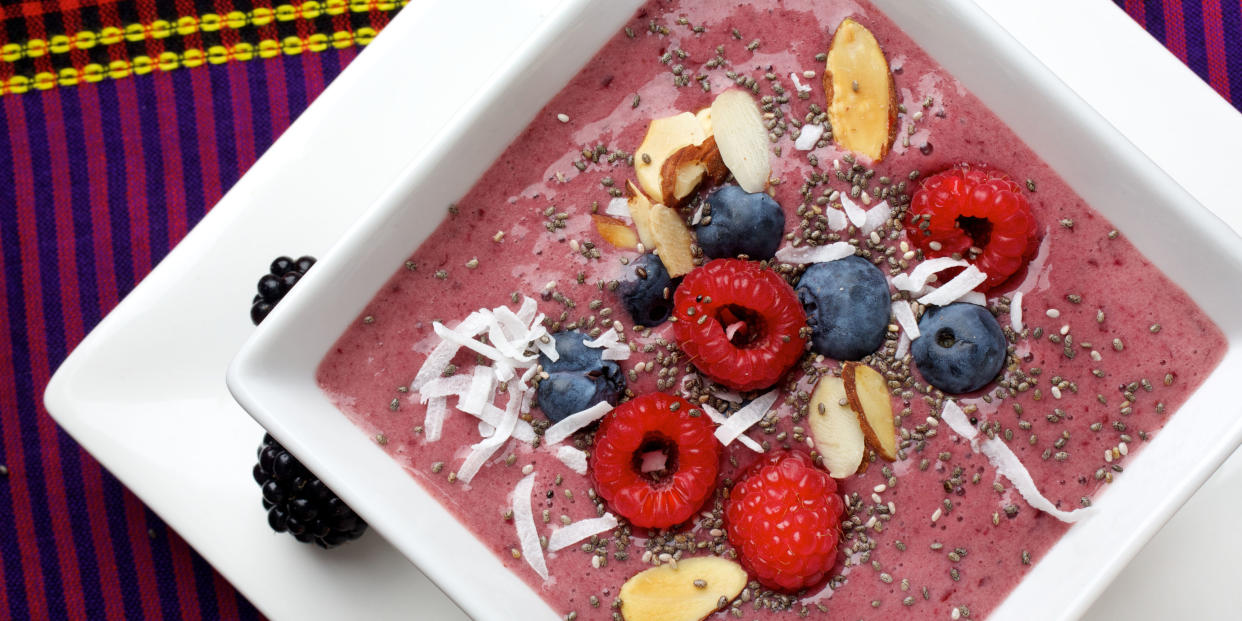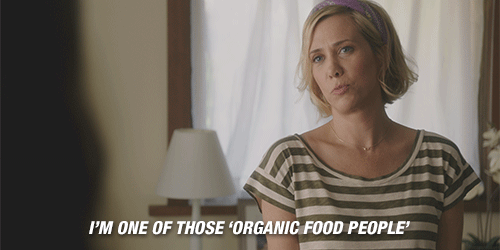Your Brain Is Tricking You Into Thinking Some Foods Are Healthier Than They Are

Turns out in the first halcyon weeks of 'New Year, new me', your brain is efficiently sabotaging your health and cost-cutting quests.
Thanks, brain.
Whilst innocently perusing the shelves of your local Prêt or Tesco's your mind often scans over the multitude of information displayed, like calories, five a day stickers, iron and vitamin mentions, straight to, yep, you guessed it, the price.
Your silly brain assumes that expensive = healthy.

You skip straight past the cheaper, more nutritious options, calling to you with their delicious fibrousness, onto the pricey choice, probably full to the brim with simple carbs and refined sugar.
This is all according to the Journal of Consumer Research who tell us that we use 'heuristics' to make daily decisions.
Heuristics are simple rules which we apply to situations to help with decision making.
Heuristics help us because the brain gets too tired (poor brain) making in-depth and informed decisions all the time, so it needs a shortcut.
The problem is, they are built on assumptions that can often be wrong.
An example of an heuristic might be Katie Hopkin's statement that she judges children by their names.
Children's names are a short cut to understanding the type of parents they have. You will know a lot about a child from 1 look at the parent
- Katie Hopkins (@KTHopkins) July 4, 2013
According to Katie, children with names like 'Chardonnay', 'Brooklyn' and 'Tyler' are naughty, often late and therefore a bad influence on her children.
On train. Table of 4 primary teachers, busy mocking the names of children they teach: Destiny, Donna, Chantelle. PC is just a public facade
- Katie Hopkins (@KTHopkins) February 22, 2013
Obviously this is an unhelpful heuristic, because Katie is associating 'working class' names (her words, not ours) with negative connotations.
This could lead to her being called 'classist', 'mean', 'ignorant' amongst other things.
Katie Hopkins hates children with geographical names yet her child is called India what a complete idiot 🔫
- Bethany stoneman (@B_stoneman) February 1, 2015
As you can see heuristics can often have little or no logic to them.
Likewise, our brain assuming money means health could lead to us being lighter in the pockets and heavier on the scales.

But, no fear, we can actually work against our own heuristics.
By being more mindful and creating an awareness in our own snoozy little brains, we can actually combat our old heuristics with new ones.
By keeping the phrase 'expensive does not equal health' in your mind as you shop, or pre-planning your meals before you head over, you can do a lot to unpack the preconceived notions that help you choose what to buy.
You Might Also Like


